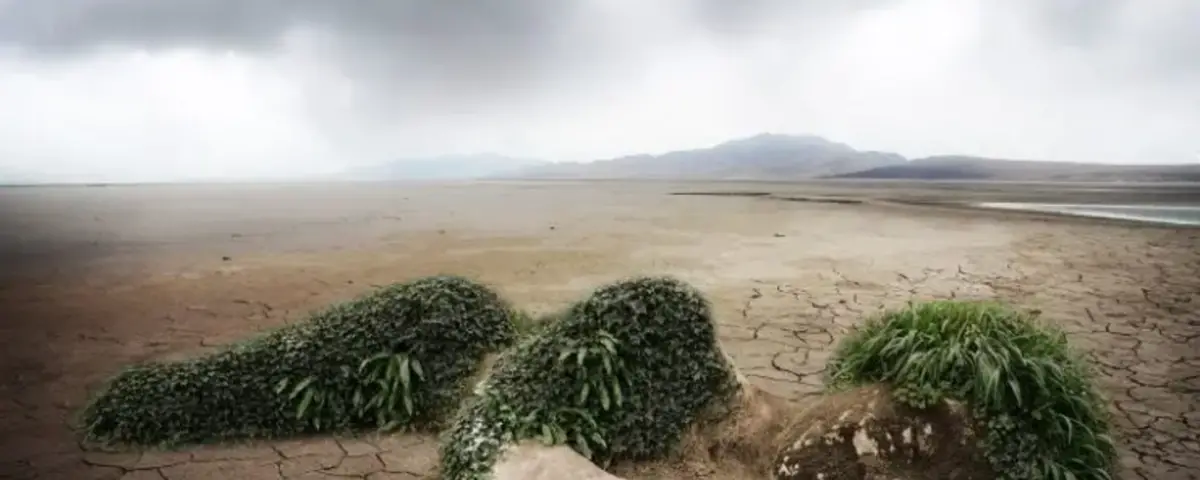A misspelling left some wondering if Ecocide(r) was an alcoholic drink made from organically grown apples. The truth is far more serious. And the startling answer to the question – is ecocide a crime against humanity – is no.
Ecocide is a potential crime due to increase in environmental degradation and the impact on all life forms. The International Criminal Court does not recognise it as a crime against humanity, but debate continues. There are initiatives to consider ecocide as a prosecutable offence internationally.
So, how do you define ecocide and what does ecocide mean? Is there an ecocide international law? These are just some of the myriad questions that revolve around a crucial topic that seems to have been forgotten. Do you remember the US military used Agent Orange to destroy Vietnam’s agriculture between 1968 and 1975. Have we also forgotten how Saddam Hussein set the Kuwait oilfields on fire at the turn of the 21st century.
Adding ecocide to “the most serious crimes of concern to the international community as a whole” recognises the climate and biodiversity crisis, with its potentially catastrophic consequences for our common environment, as one of the greatest threats to human rights of our era.
International Crimes Database
The campaign to criminalise ecocide focuses on the need to protect not just humans. But also ecosystems and the environment from severe and irreversible damage. The proposed definition of ecocide by the Stop Ecocide expert panel is:
“Unlawful or wanton acts committed with knowledge that there is a substantial likelihood of severe and either widespread or long-term damage to the environment or its inhabitants”
IPI Global Observatory
The International Criminal Court only recognises four international crimes. They include genocide and crimes against humanity. But the push for ecocide to join this list is becoming stronger due to global environmental concerns.
UN declares Healthy Environment a Human Right
The continuance of many governments to ignore the dangers of pollution led the UN General Assembly to take action. There is hope that this will add weight to the growing pressure to make Ecocide a crime against humanity.
The United Nations General Assembly has passed a historic resolution declaring that everyone on the planet has a right to a healthy environment, including clean air, water, and a stable climate.
CCAC secretariat – 2 August, 2022
Russia’s Invasion of Ukraine 2022
The Russiam invasion of Ukraine has once again highlighted a major ommission in environmental and human rights laws.
Avaaz.org – abstract
Avaaz sums it up well in this abstract from its plea to the world.
The European Union is about to decide on making the mass destruction of its environment a crime. But there’s still a long way to go, and if the EU moves it could set an example for the world to follow.
Russian troops are destroying Ukraine’s environment — leaving behind more than 50 billion dollars in environmental damages. If you believe that the severe destruction of our precious Mother Earth should be a crime, join our petition demanding laws against ecocide, starting in the EU and creating a ripple effect to protect nature in the entire world!
Russian troops have killed thousands and displaced millions. They are also destroying Ukraine’s environment, toxifying its soil, and burning its forests and fields. 600 species of animals and 880 species of plants are now under threat.
Altogether, the damage to the environment amounts to over 50 billion dollars. But ecocide, the act of severely destroying the environment, is not considered an international crime.
But there is hope: the European Union is about to decide on making the mass destruction of its nature illegal. If they act, it could set an example for the world to follow.
Putin and his cronies are already being investigated and could be prosecuted by the International Criminal Court for their war crimes against Ukraine — but a lot of environmental destruction doesn’t fit the war crime definition.
And it’s not just Ukraine. All over the world, nature is being destroyed — and stronger laws could be used to protect threatened ecosystems everywhere. From national legislation to the International Criminal Court.
Now finally, there is momentum! The leading committee in the European Parliament just voted to criminalise ecocide — but we still need to get the European Commission and Member States on board. If we win in the EU, this could pave the way for the creation of a new international crime of ecocide.
Avaaz – March 2023
Existing Legal Framework
International Law
The concept of ecocide as a crime is not explicitly recognised under international law. However, some instances of severe environmental harm could be considered under existing case law pertaining to crimes against humanity.
Advocacy and Prospects
There has been significant movement towards the formal recognition of ecocide as an international crime. Advocacy groups, such as Stop Ecocide Foundation, are campaigning for the inclusion of ecocide as a crime. They argue that its recognition would help protect both human and environmental interests. The concept of ecocide envisions the destruction of ecosystems as a criminal act, irrespective of direct human impact.
An emerging codification could lead to the inclusion of a new international crime of ecocide..
These developments indicate growing momentum towards the recognition of ecocide as a crime under international law. If included, ecocide could hold both state and non-state actors accountable for large-scale environmental devastation. It has the potential to join the ranks of crimes against humanity, genocide, and war crimes.
Debate on Ecocide as a Crime Against Humanity
The debate on whether ecocide should be recognised as a crime against humanity and non-human life, is ongoing. Ecocide refers to the intentional and extensive damage, destruction, or loss of ecosystems that could have serious consequences for the wellbeing of people, wildlife, and the planet. Examples of such practices include oil spills, deforestation, deep-sea mining, and large-scale industrial pollution.
Some campaigners and environmental activists argue that ecocide should be considered as a crime against humanity, as its consequences can be just as severe, far-reaching, and long-lasting as other internationally recognised crimes such as genocide or war crimes. A key argument is that ecocide not only affects humans but also threatens nature itself, causing the destruction of ecosystems that could endanger entire species and habitats.
However, although it is easy to define ecocide, there are challenges to universally recognising ecocide as a crime against humanity. Currently, there is no general state practice that unambiguously considers ecocide as a crime under customary international law. This means that legal recognition and enforcement of ecocide as a crime could be difficult on a global scale.
Several proposals have been made for the establishment of an international legal framework to address ecocide. One such proposal is the introduction of an ecocide law that specifically targets serious violations of environmental integrity, and seeks to hold individuals, corporations, and states accountable for their actions. A campaign has also called for the United Nations to recognise ecocide as a crime against peace. But experts doubt the chances of the idea coming to fruition.
Potential Implications of Criminalising Ecocide
Legal Consequences
Designating ecocide as a crime, particularly as a crime against humanity, would significantly enhance the legal framework for holding individuals, companies, and states accountable for severe environmental damage. For example, the International Criminal Court could potentially have jurisdiction over such a crime. This would extend the scope of prosecutions for environmental damage beyond the context of war. It would enable the prosecution of individuals responsible for large scale environmental harm, such as oil spills or deforestation.
Environmental Protection
The criminalisation of ecocide could lead to improved environmental protection as individuals and corporations would face severe consequences for causing damage to the environment. A well-defined crime of ecocide, as proposed by a panel of criminal and environmental lawyers, would cover not only wanton acts but also unlawful ones. This could lead to the strengthening of domestic and international regulations and safeguards to protect the environment.
Economic and Political Impacts
The acknowledgement of ecocide as a crime could have considerable economic implications. Industries that rely heavily on natural resources, such as the fossil fuel, forestry, and mining sectors, would face greater scrutiny and potential prosecution for causing extensive environmental damage. This could lead to a shift towards more sustainable business practices and encourage investment in eco-friendly alternatives.
Politically, the criminalisation of ecocide might give greater weight to international environmental negotiations and agreements. Countries would have a legal obligation to prevent environmental harm on a large scale, potentially resulting in stronger commitments to reduce emissions, deforestation, and other forms of environmental degradation.
Case Studies
Analysis of various case studies reveals that while ecocide is not yet legally recognised as a crime against humanity, there has been a growing movement to incorporate it into international law. Such recognition would help address the destruction of ecosystems and deter activities causing severe environmental damage.
For instance, the BBC has covered instances including oil spills and deep-sea mining, where activists push for ecocide to be considered a crime. The demand for ecocide to be recognised as a crime against humanity mainly functions as a framework for insisting on greater accountability for environmental harm.
The following is a list of interesting case studies.
- Agent Orange, 1961-1971, Vietnam
- Alberta Tar Sands
- Fukushima’s Debris
- Disappearance of the Aral Sea, Central Asia
- Bee colony collapse
- Oil exploitation of the Niger Delta
- Palm oil, Indonesia
- Belo Monte
- Prestige oil spill
- Ecocide in Greece – Gold Mining project in the northern region
- Ecocide in Romania – Rosia Montana
- Ecocide in Finland – Talvivaara Mine
- Pesticides and Birds
- Nuclear power plants
- Hydraulic fracturing (fracking)
- Atlantic Bluefin tuna
- CCS – Carbon Capture and Storage
- The Ajka alumina sludge spill, 2010, Hungary
Final Thoughts
Criminalising ecocide has far-reaching implications for legal accountability, environmental protection, and the economic and political landscape. The recognition of ecocide as a crime against humanity could therefore play a significant role in promoting global environmental justice and sustainability.
In December 2022, a proposal to define ecocide was presented, indicating a momentum towards its international recognition as a crime. While ecocide has not yet been formally adopted as an international crime against humanity, these sources and many others demonstrate that progress is being made to address this issue on a global scale.
Various expert panels and organisations have participated in discussions and proposals to define ecocide and address it as a crime. The Stop Ecocide expert panel definition of ecocide is the best I have seen.
“unlawful or wanton acts committed with knowledge that there is a substantial likelihood of severe and either widespread or long-term damage to the environment.”
IPI Global Observatory


